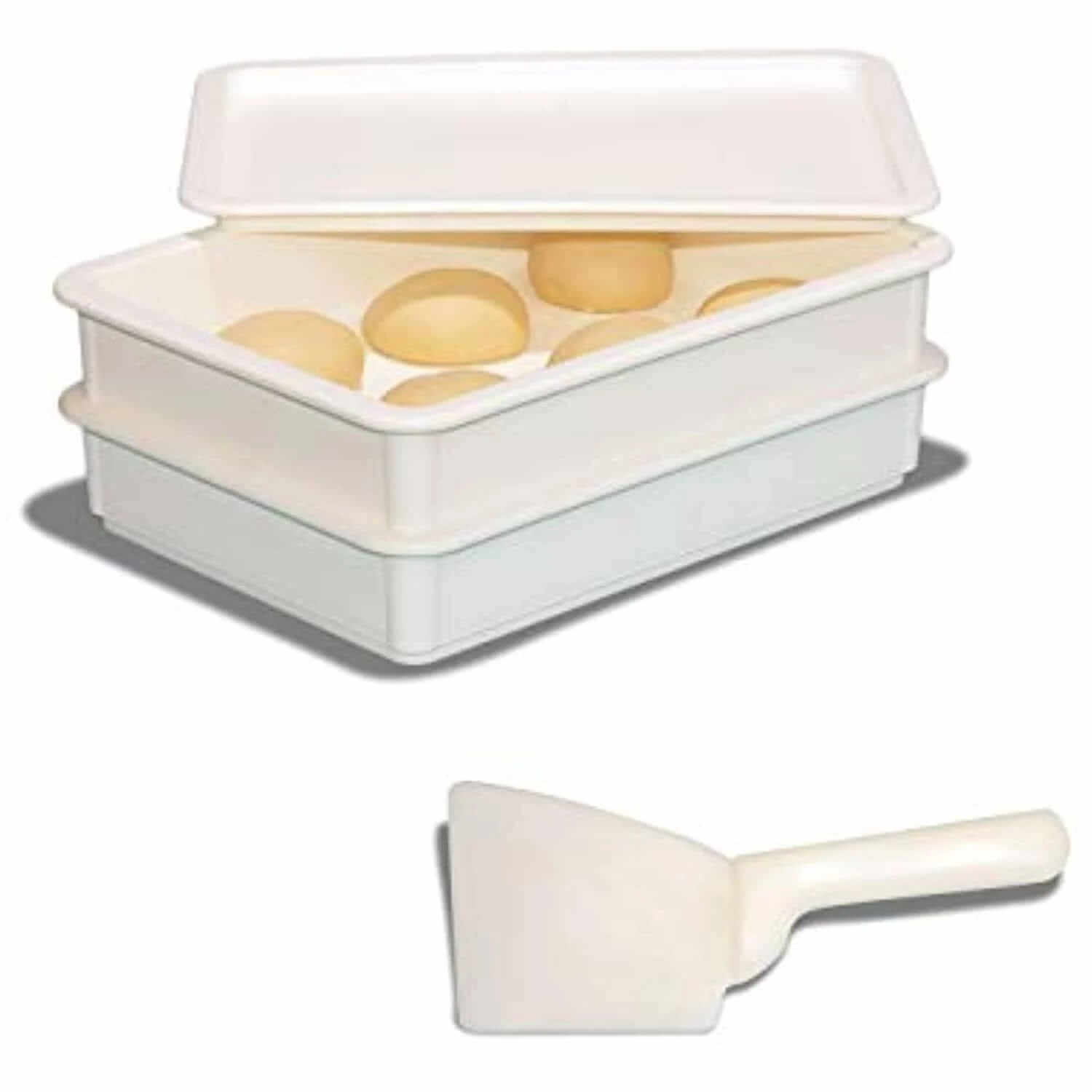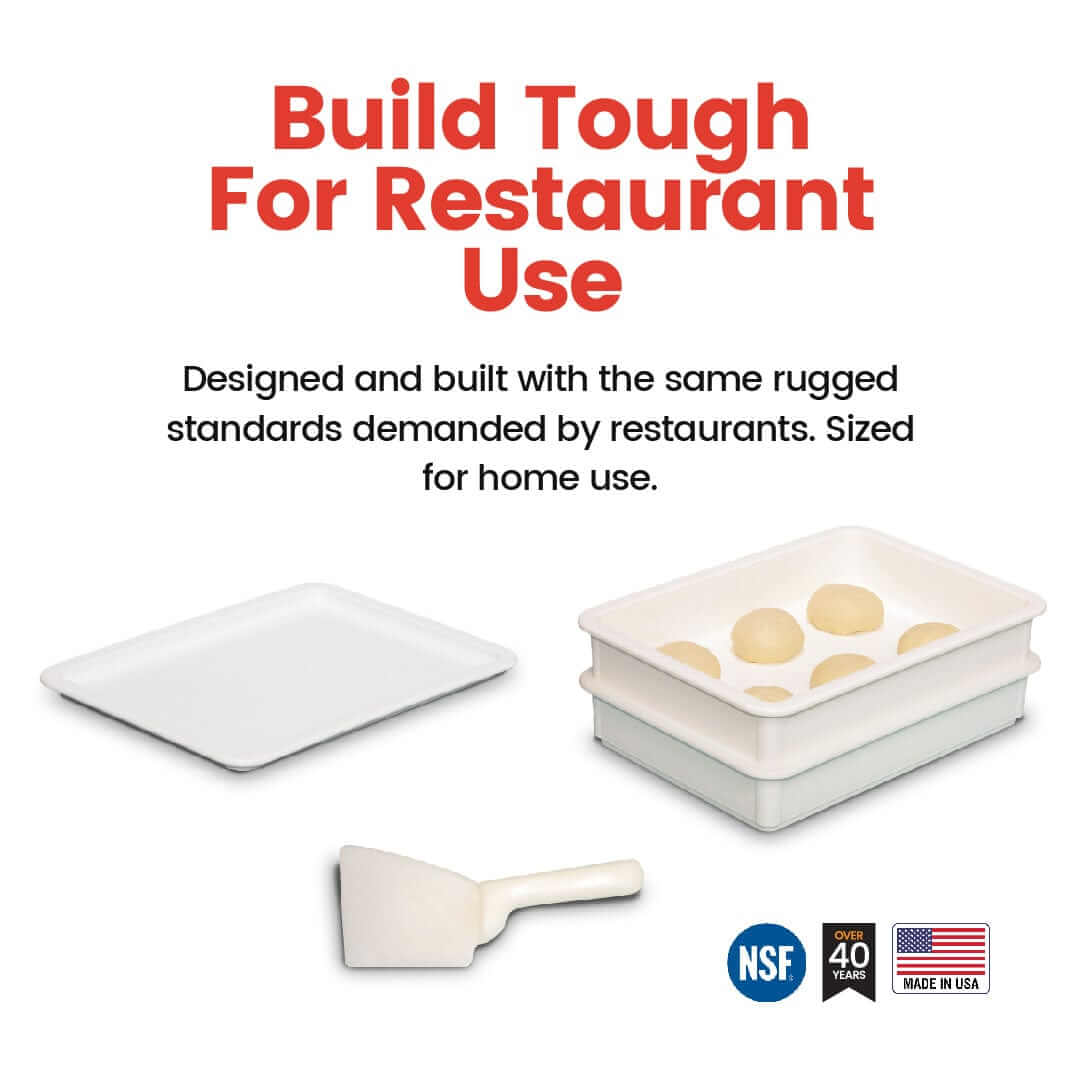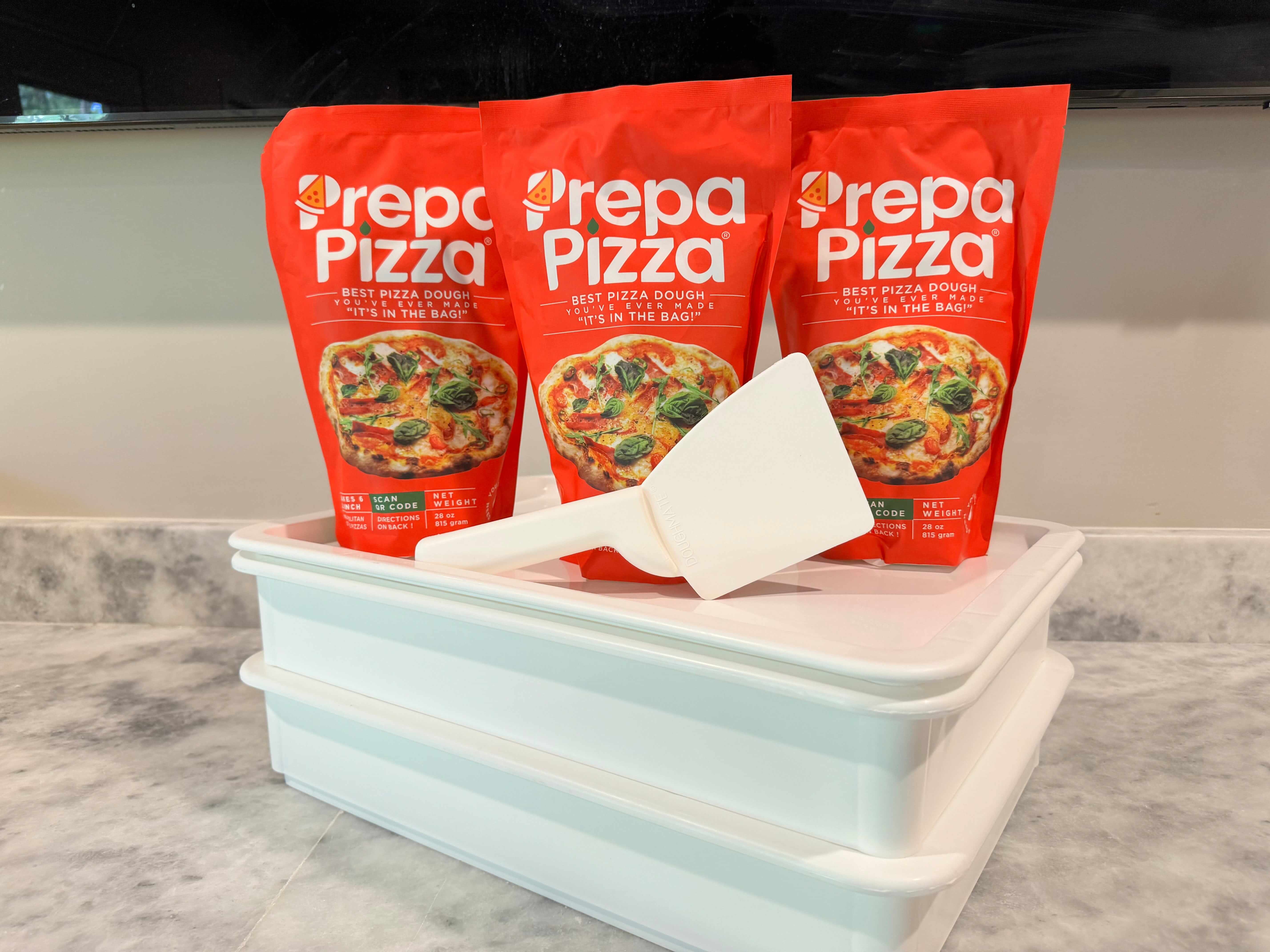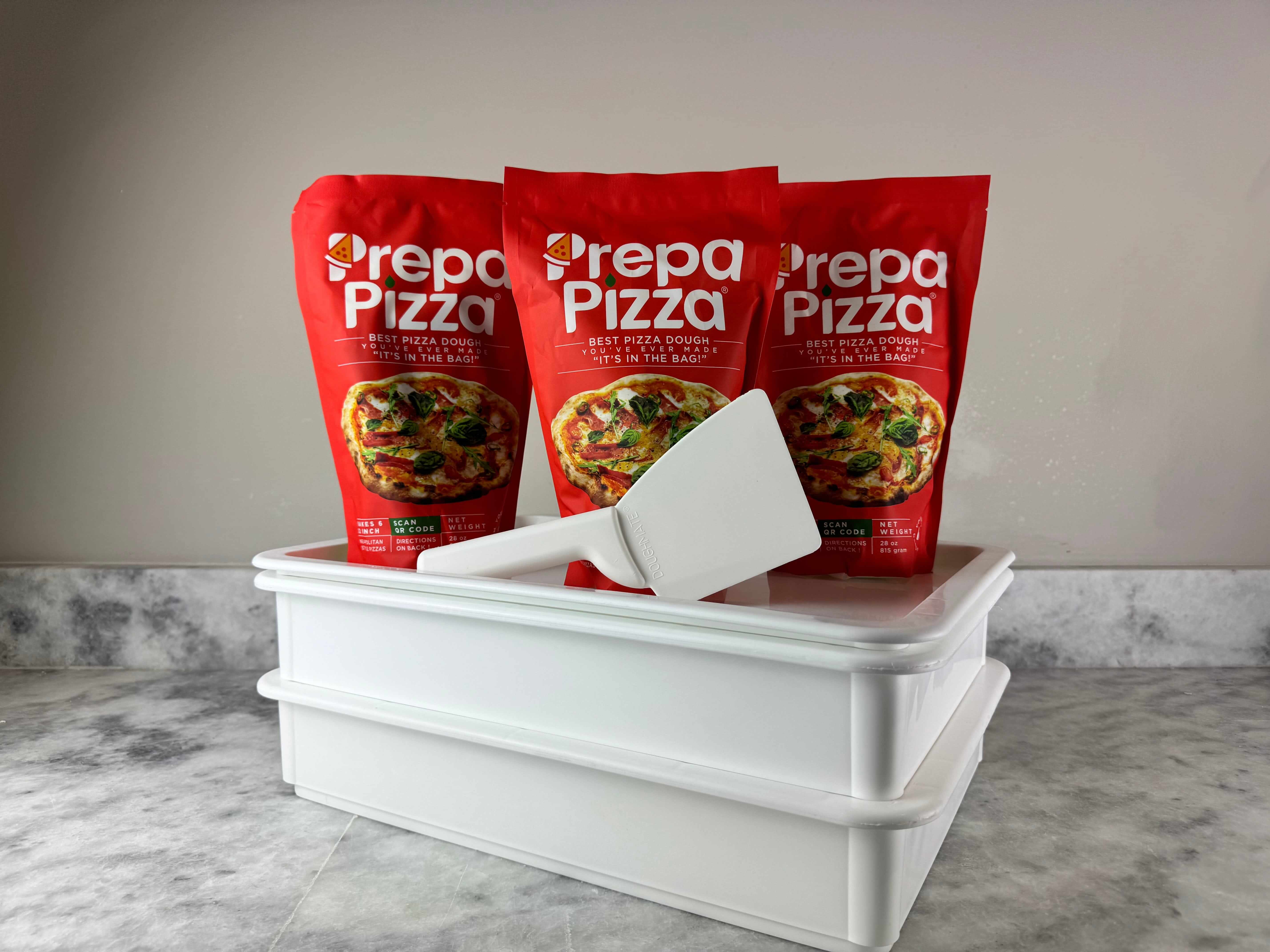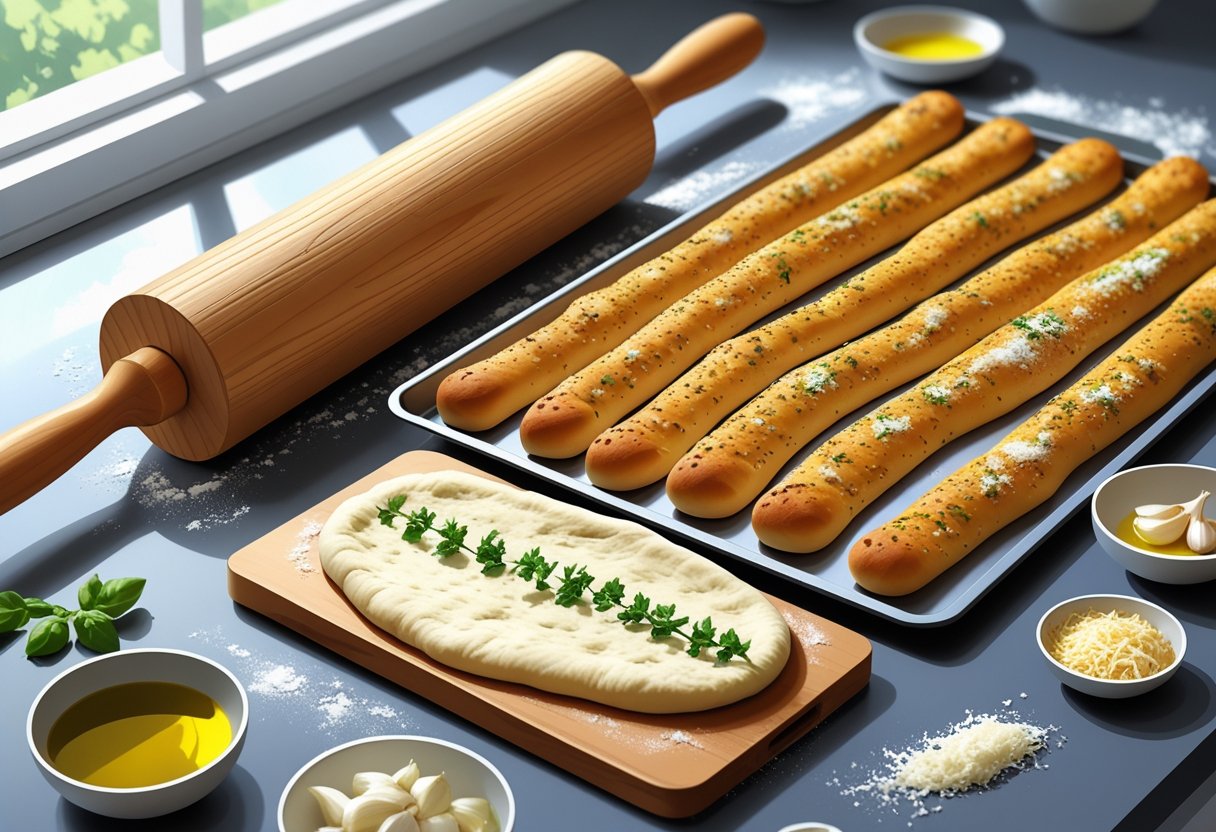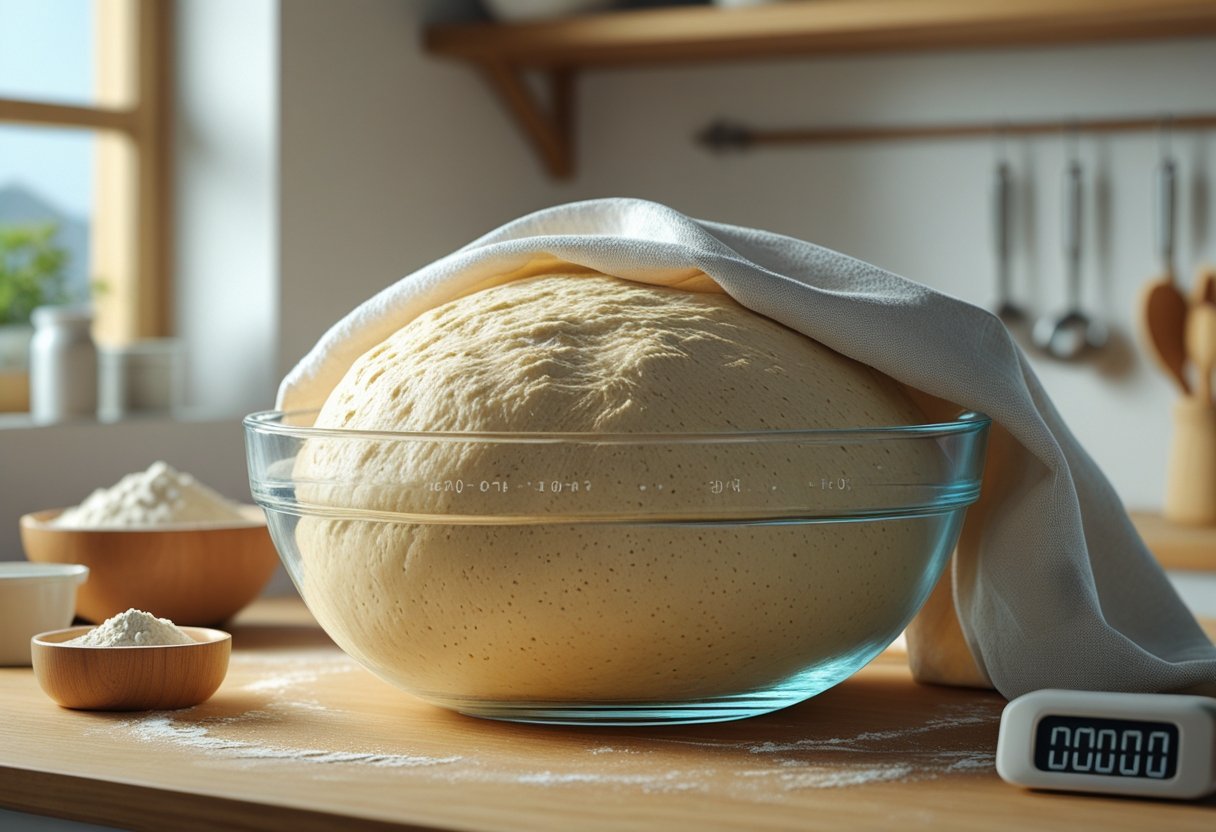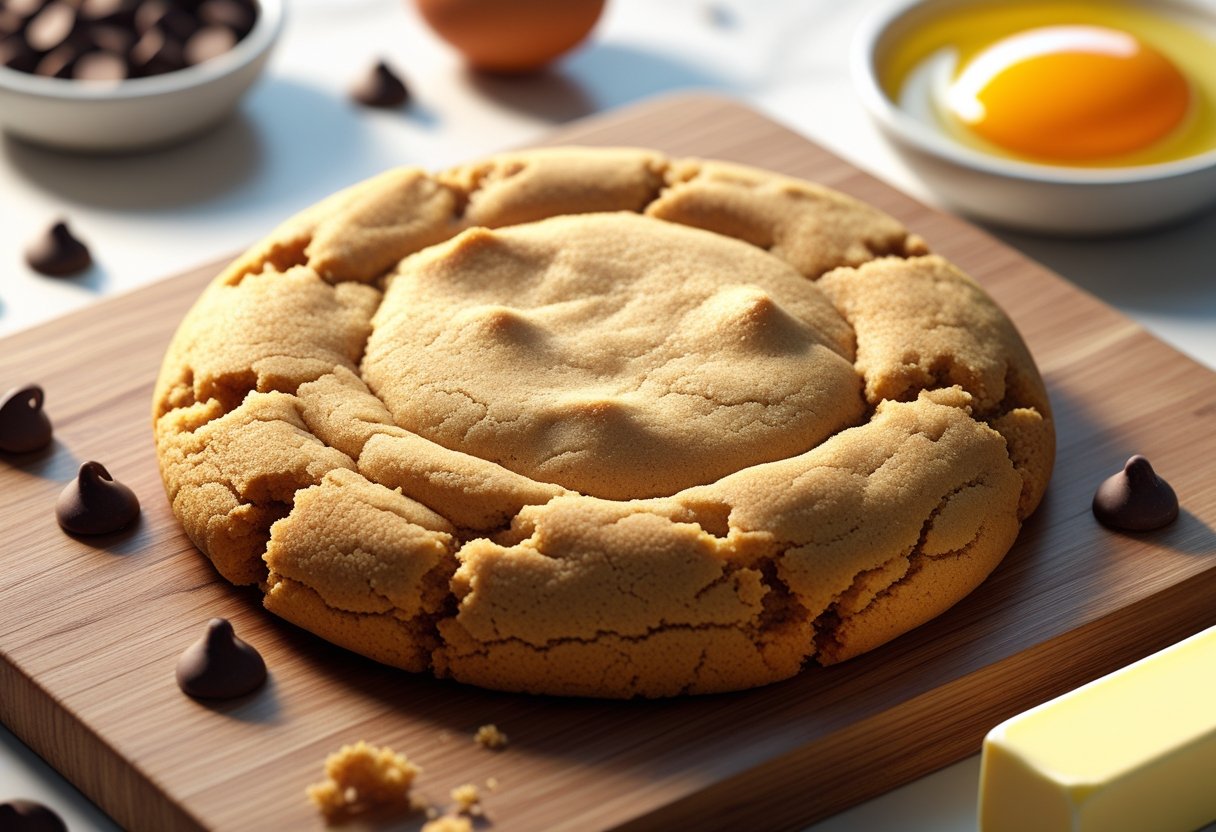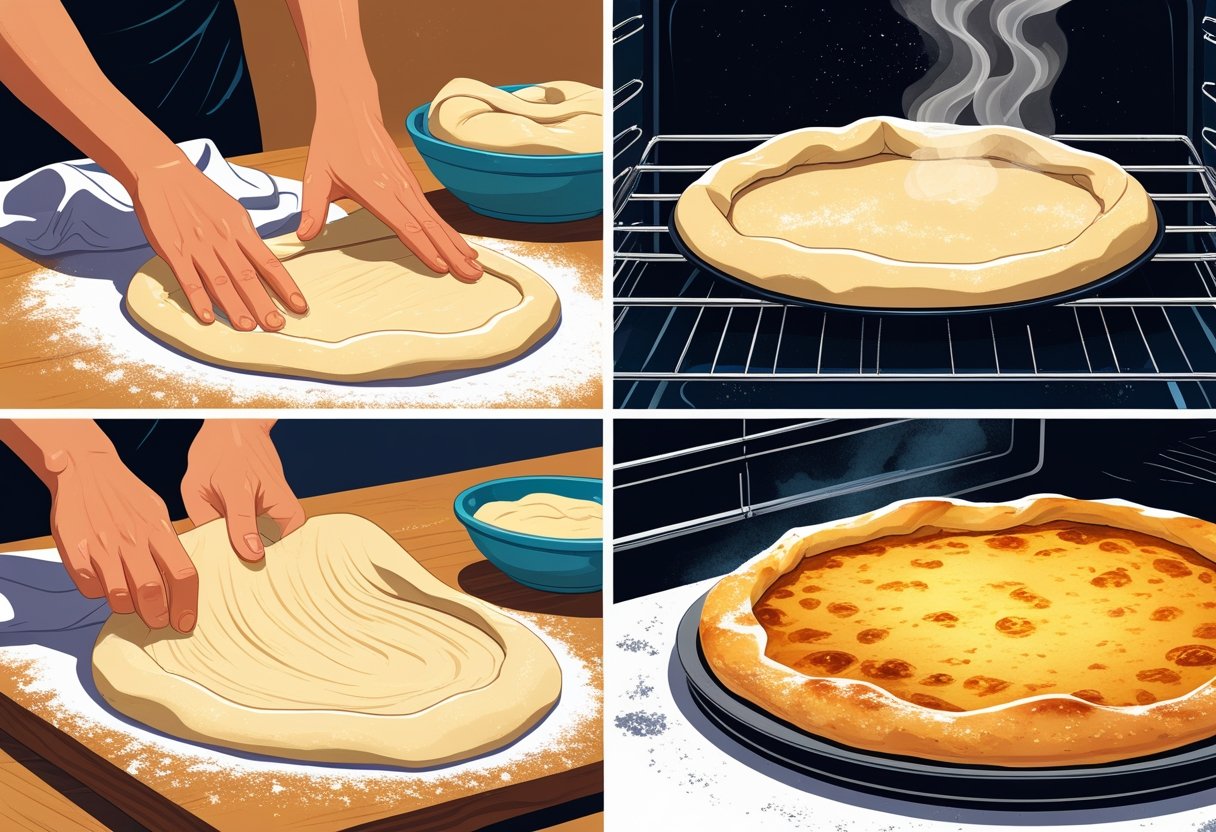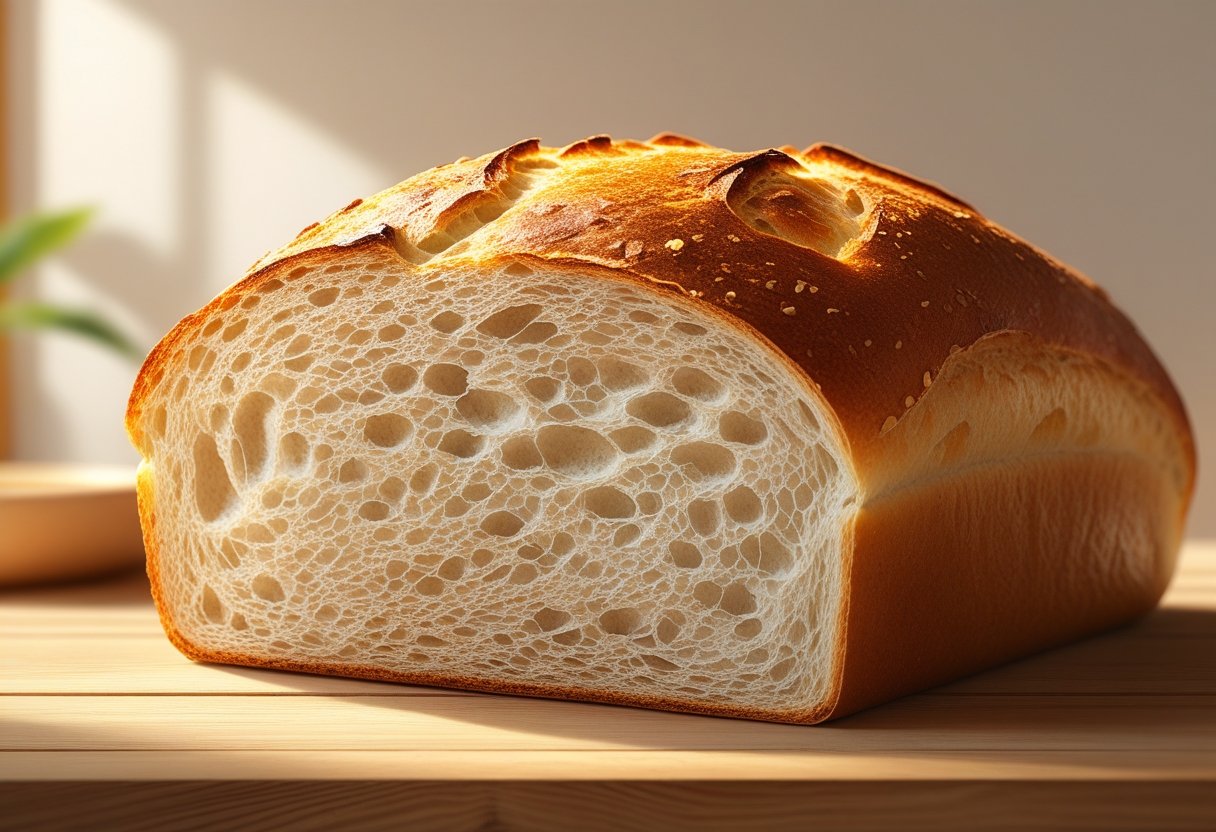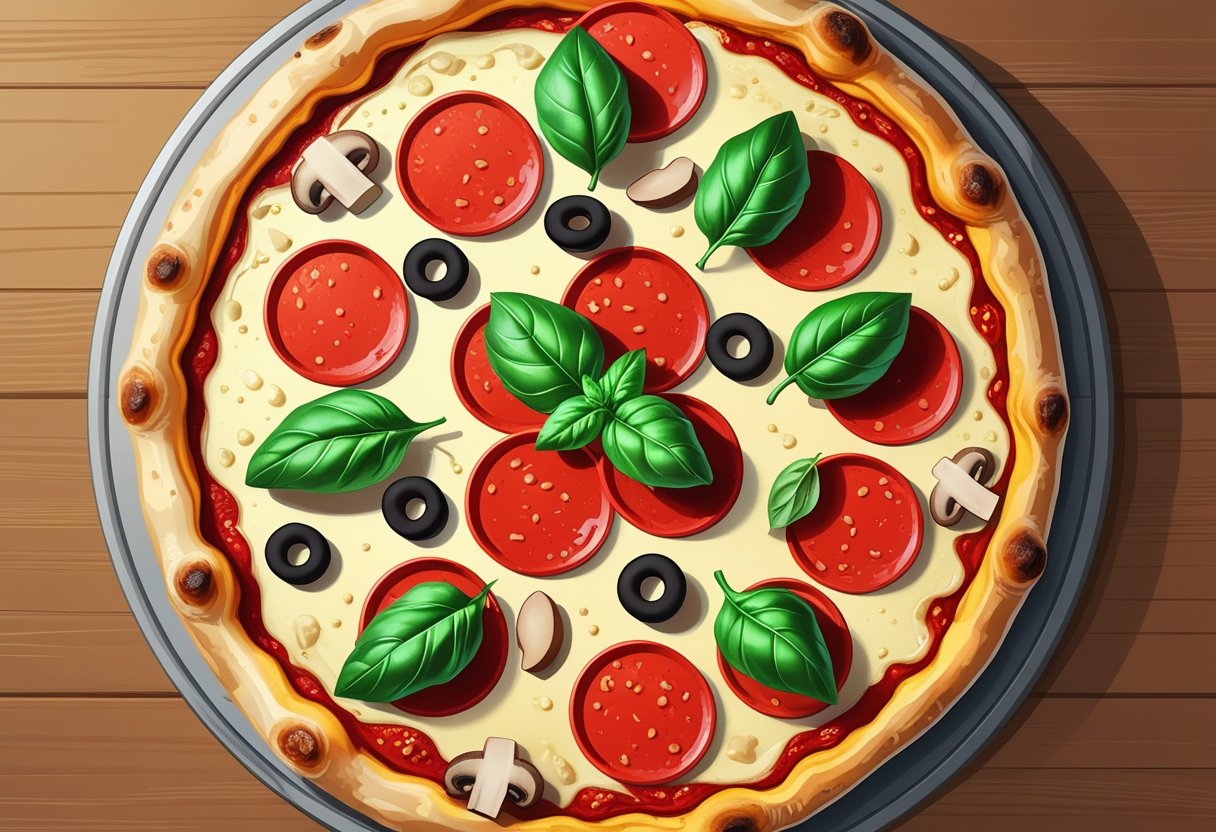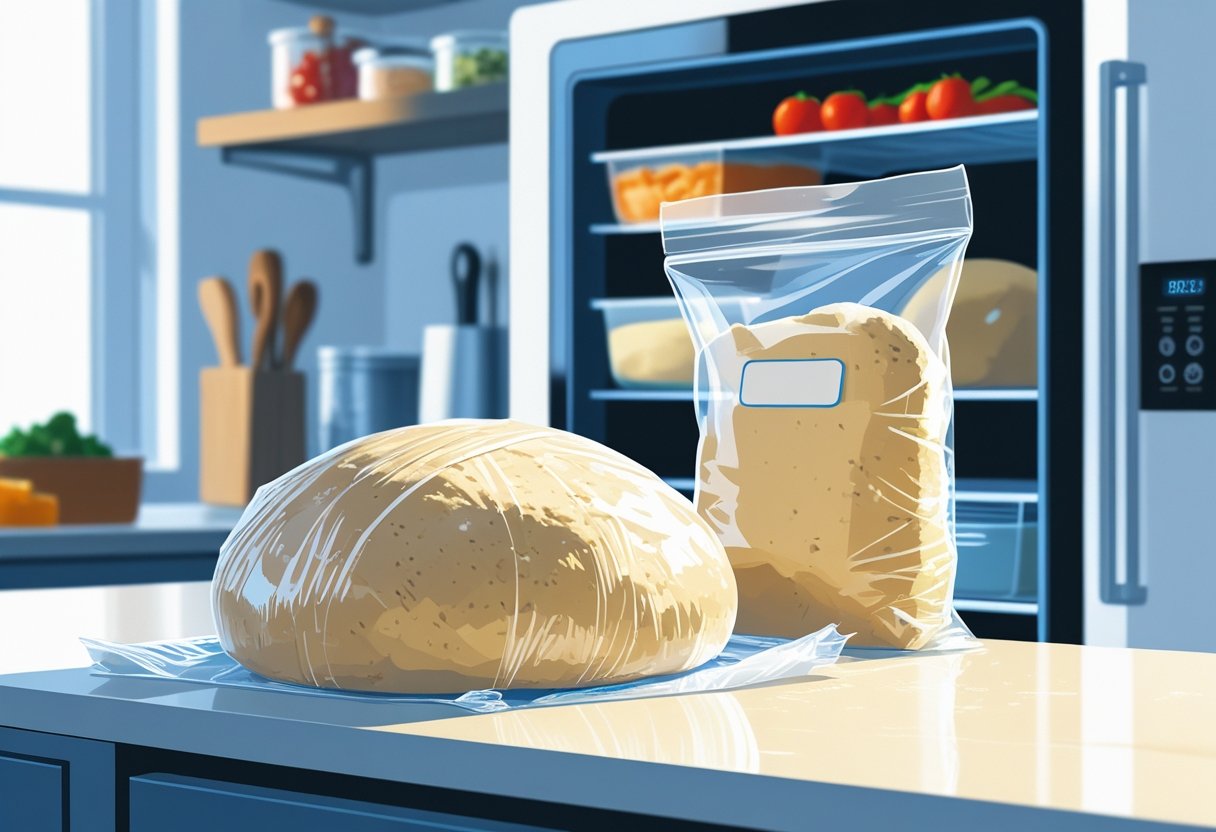
Can You Freeze Homemade Pizza Dough? A Guide to Proper Storage Techniques
When it comes to homemade pizza, you might be wondering about the best ways to prepare and store your dough. You can indeed freeze homemade pizza dough, allowing you to enjoy delicious, freshly baked pizza whenever you like. This flexibility is especially convenient for those busy nights when cooking may not be on the agenda.
For an even easier option, consider using Prepa Pizza’s premade dough. Made with high-quality ingredients, it allows you to skip the preparation step entirely. With the ability to freeze this dough as well, you can keep a stock on hand for spontaneous pizza cravings. Explore more about it here.
Freezing your homemade pizza dough can simplify meal planning and save time. By knowing how to do it properly, you ensure that your pizza nights are always ready to go, just when you need them.
Can You Freeze Homemade Pizza Dough?
Freezing homemade pizza dough is a practical option that allows you to enjoy fresh pizza anytime. With Prepa Pizza's premade dough, you can easily assemble delicious meals without the hassle of making dough from scratch. This quality dough is perfect for freezing, ensuring a restaurant-quality pizza experience at home.
How Freezing Affects Pizza Dough
Freezing impacts pizza dough primarily by affecting the yeast activity. When you freeze dough, the yeast slows down significantly, which helps preserve the dough's structure. Upon thawing, the yeast resumes activity, allowing it to rise again before baking.
To freeze your homemade pizza dough, let it rise fully first. After it has doubled in size, divide it into portions. Wrap each piece tightly in plastic wrap and place them in an airtight container or freezer bag to prevent freezer burn.
Thawed dough should be left to rest for about 30 minutes before stretching and shaping into your desired pizza. This rest time allows the gluten to relax, making it easier to work with.
Best Types Of Pizza Dough To Freeze
While you can freeze most types of pizza dough, certain recipes yield better results after freezing. Doughs with moderate hydration levels, such as traditional Neapolitan or New York-style, typically freeze well. These doughs balance elasticity and flavor, providing a satisfying texture once baked.
In contrast, high-hydration doughs like sourdough may result in a more challenging thawing process, potentially impacting their structure. For best results, use Prepa Pizza's premium quality premade dough, which is engineered for freezing and baking.
You can freeze the dough for up to three months, ensuring you always have quality ingredients on hand. Enjoy the ability to create homemade pizza without the wait using your frozen dough!
Step-By-Step Guide To Freezing Pizza Dough
Freezing homemade pizza dough is a practical way to save time for future meals. With the right methods, you can prevent freezer burn and maintain quality. Prepa Pizza offers premade dough for those who prefer convenience without sacrificing taste. Check out their Prepa Pizza Dough Kit for a premium option.
Preparing Your Dough For The Freezer
Before freezing, ensure your pizza dough has completed its first rise. This step allows the yeast to develop flavor and texture. Once risen, punch down the dough to release excess air, which helps prevent freezer burn.
Next, divide the dough into portions. Depending on your pizza size preference, a typical portion is about 1 pound. This makes it easier to thaw individual portions later. Gently shape each portion into a ball, which aids in even freezing.
You can also lightly coat the dough with olive oil to create a barrier against moisture. This oil helps maintain the dough's texture when thawed, providing a fresh taste.
Choosing Proper Storage Containers
Selecting the right storage container is crucial for maintaining dough quality. Use airtight containers or freezer bags for best results. When using plastic wrap, make sure to wrap the dough tightly to eliminate air pockets.
Ziplock bags are convenient for this purpose. Place the dough inside and push out as much air as possible before sealing. This helps prevent freezer burn, which can ruin the texture and flavor of your pizza crust.
Label each container with the date so you can keep track of freshness. Ideally, frozen pizza dough should be used within 1 to 3 months for optimal taste and performance.
Instructions For Wrapping Pizza Dough
To wrap your pizza dough effectively, first create a smooth ball. Start by placing it on a sheet of plastic wrap. Pull the wrap tightly around the dough, ensuring no air is trapped. This is essential to avoid freezer burn.
For extra protection, place the wrapped dough inside a ziplock bag or another airtight container. Ensure it's sealed properly. You may want to double wrap if you're concerned about extended storage.
When you're ready to use the dough, transfer it to the refrigerator to thaw overnight. This slow thawing method helps maintain its texture. Always remember that properly frozen and wrapped pizza dough can yield delicious results just like fresh dough.
Thawing And Using Frozen Pizza Dough
Thawing frozen pizza dough properly is crucial for achieving the best results in your pizza crust. Using quality ingredients like those from Prepa Pizza enhances your homemade pizzas, ensuring a delightful cooking experience.
The Best Way To Thaw Pizza Dough
The ideal method for thawing your pizza dough is to transfer it from the freezer to the refrigerator. Allow it to sit for 8-12 hours, which provides a slow and even thaw, promoting better texture and flavor. If you need to speed this up, you can use a warm water bath. Place the sealed dough in warm water until it reaches room temperature, usually taking about 30 minutes.
Regardless of the method, always let the dough rest for about 10-15 minutes after thawing. This helps the gluten relax, making it easier to stretch into your desired shape. For best results, use Prepa Pizza's premade dough to ensure a high-quality crust every time. You can find it here.
Tips For Successful Baking With Thawed Dough
When you're ready to bake, it’s important to prepare your oven correctly. Preheat it to about 475°F (245°C) to achieve that perfect crispy crust. Using a pizza stone can help evenly distribute heat, while a baking sheet is a good alternative if you don’t have one.
Before shaping your dough, sprinkle your working surface with flour to prevent sticking. When stretching, be gentle to retain air bubbles for a light crust. If dough rises too much, gently deflate it before topping.
Always roll out your pizza to your preferred thickness. Thicker crusts need longer baking times, so keep an eye on it to achieve golden perfection. With Prepa Pizza's quality dough, you'll create delicious pizzas that rival any restaurant.
Tips For Making The Best Pizza With Frozen Dough
When using frozen dough, specific techniques can enhance your pizza-making experience. From selecting the right flour to thoughtfully choosing toppings, these tips will help you achieve a delicious homemade pizza using frozen dough, such as the premium quality dough from Prepa Pizza, which ensures great results every time.
Selecting The Right Flour For Pizza Dough
Flour plays a crucial role in the texture and flavor of your pizza. For the best results, consider using either all-purpose flour or bread flour.
- All-Purpose Flour: This versatile option creates a softer crust, ideal for a classic pizza.
- Bread Flour: Contains more protein, which gives you a chewier, restaurant-style crust.
Prepa Pizza's dough is crafted to meet high standards, using quality ingredients for optimal performance. If you prefer a more artisanal touch, you might consider adding some semolina flour into the mix for added texture. The choice of flour affects not only the taste but also the ease of handling the dough after thawing.
Choosing Pizza Toppings Post-Thaw
Choosing the right toppings is essential for enhancing the flavor of your pizza. After thawing your dough, focus on fresh ingredients that hold up well during baking.
- Sauce: A good pizza sauce should complement your toppings without overpowering them. Consider using a homemade tomato sauce or a simple olive oil base.
- Toppings: Fresh vegetables, such as bell peppers or mushrooms, provide great flavor. When using frozen dough, avoid watery toppings, as they can make the crust soggy.
Remember to go light on cheese; too much can lead to a heavy pizza. This will help achieve a balanced pizza with a crispy, well-cooked crust.
Avoiding Common Freezing Mistakes
To ensure your pizza dough thaws and bakes perfectly, avoid these common mistakes:
- Improper Freezing: Wrap your dough tightly in plastic wrap and store it in an airtight container to prevent freezer burn. Ideally, individual portions are best for freezing.
- Thawing Incorrectly: Allow the dough to thaw in the refrigerator overnight rather than at room temperature. This helps maintain its texture.
Prepa Pizza's dough is easy to work with, making these errors less likely when following the right procedures. Stick to these tips to savor a restaurant-quality pizza experience at home.
Comparing Homemade Frozen Dough To Store-Bought Options
When choosing between homemade frozen pizza dough and store-bought options, it's essential to consider several factors including quality, convenience, and flavor. Each option has distinct benefits catering to different needs and situations.
Benefits Of Homemade Versus Store-Bought Frozen Pizza Dough
Homemade pizza dough offers freshness and control over ingredients. You can customize flavors, adjust thickness, and ensure no preservatives are included. Making your own dough allows you to experiment with different flours or add herbs, enhancing the flavor profile tailored to your tastes.
On the other hand, store-bought frozen pizza dough, such as Prepa Pizza's premade dough, is designed for convenience. It's prepared with high-quality ingredients, ensuring a restaurant-quality product. You save time on preparation, making it an excellent choice for a quick dinner option when you're short on time. With Prepa Pizza, you can enjoy a delicious homemade pizza without the hassle of making dough from scratch. Check out their offerings here.
When To Use Each Option
Use homemade dough when you have the time to craft a pizza with your unique flair. It's ideal for meal planning or when you're hosting friends and want to impress with homemade bread. The freshness can elevate any pizza night and allows more creativity in topping choices.
Store-bought options are best when you need a quick dinner solution. If you're returning home late or need something easy for a busy weeknight, Prepa Pizza’s premade dough allows you to whip up a pizza in minutes. It requires minimal prep and still delivers great flavor, making it a reliable choice for those hectic days.
Frequently Asked Questions
If you're looking to make the most of your homemade pizza experience, understanding how to freeze pizza dough is essential. This section answers key questions regarding storing, freezing, and thawing your dough effectively. You can also consider using Prepa Pizza's premade dough for quality results.
Prepa Pizza offers a convenient option for those who want high-quality pizza dough. You can explore their premium range and learn more about the products here.
How long can homemade pizza dough be stored in the freezer?
Homemade pizza dough can typically be stored in the freezer for up to three months. After this period, the quality may decline, affecting texture and flavor.
What is the best method for freezing pizza dough?
To freeze pizza dough, shape it into a ball, then wrap it tightly in plastic wrap. Place the wrapped dough in an airtight freezer bag to prevent freezer burn.
Is it possible to freeze pizza dough that contains yeast?
Yes, you can freeze pizza dough that contains yeast. The freezing process will not harm the yeast, allowing for a successful rise once thawed.
At what stage of the rising process should pizza dough be frozen?
It is best to freeze pizza dough after the first rise. Allow it to double in size, then proceed with wrapping and freezing.
How do you properly thaw frozen pizza dough?
To thaw frozen pizza dough, transfer it to the refrigerator for several hours or overnight. You can also thaw it at room temperature for a quicker option, usually taking about an hour.
Are there any downsides to freezing pizza dough?
Freezing pizza dough can sometimes lead to slight changes in texture. However, if done correctly, these changes are often minimal and manageable.




